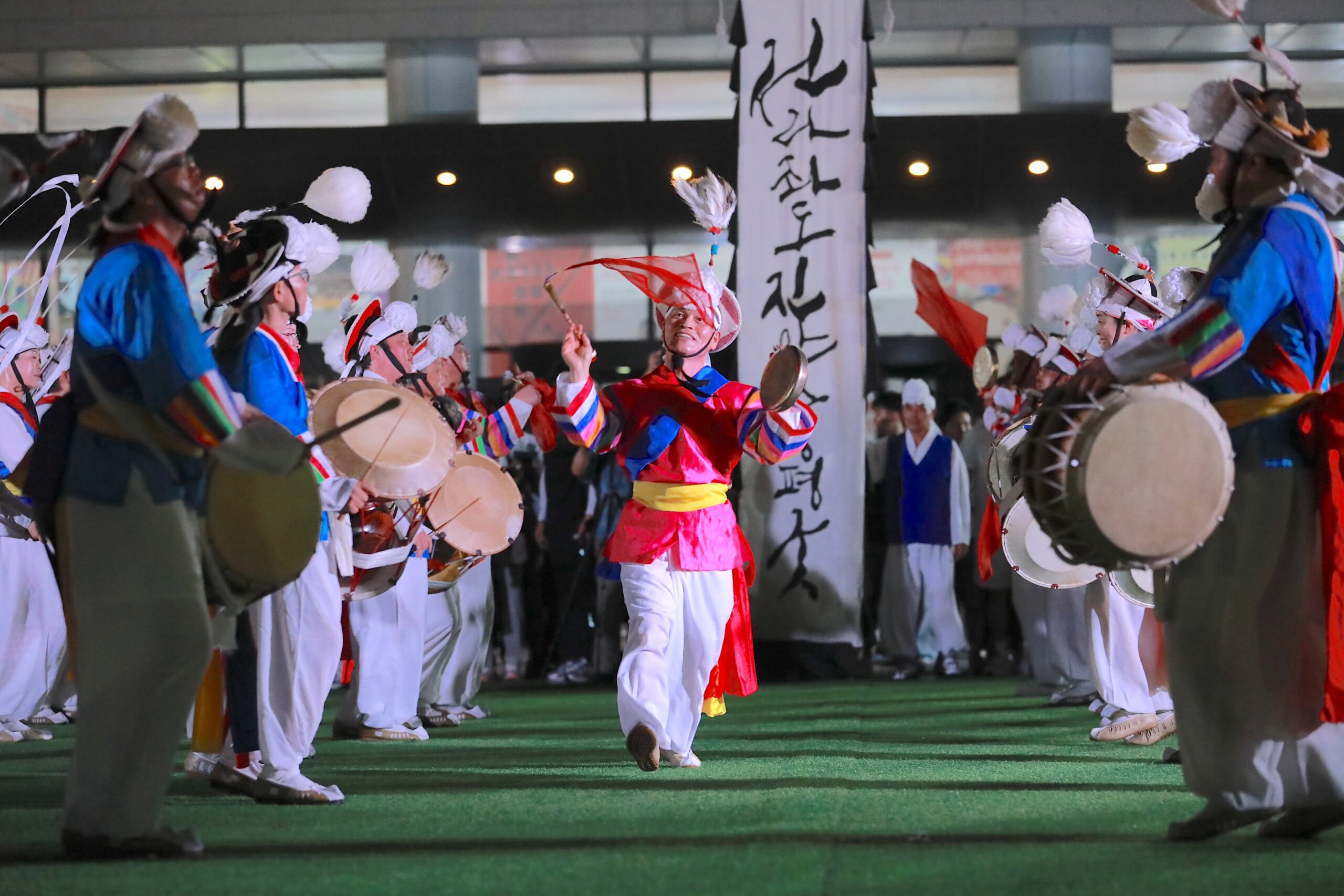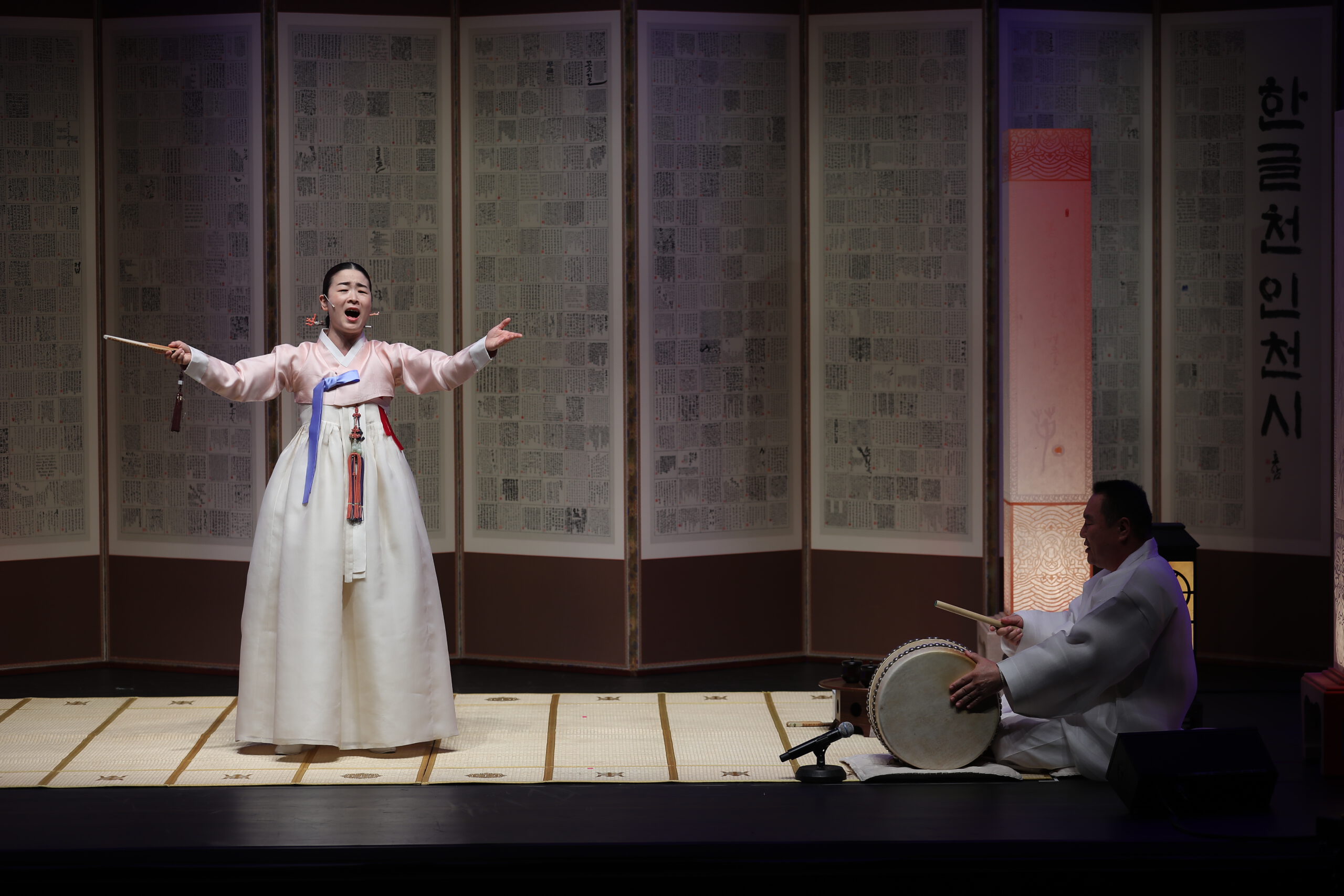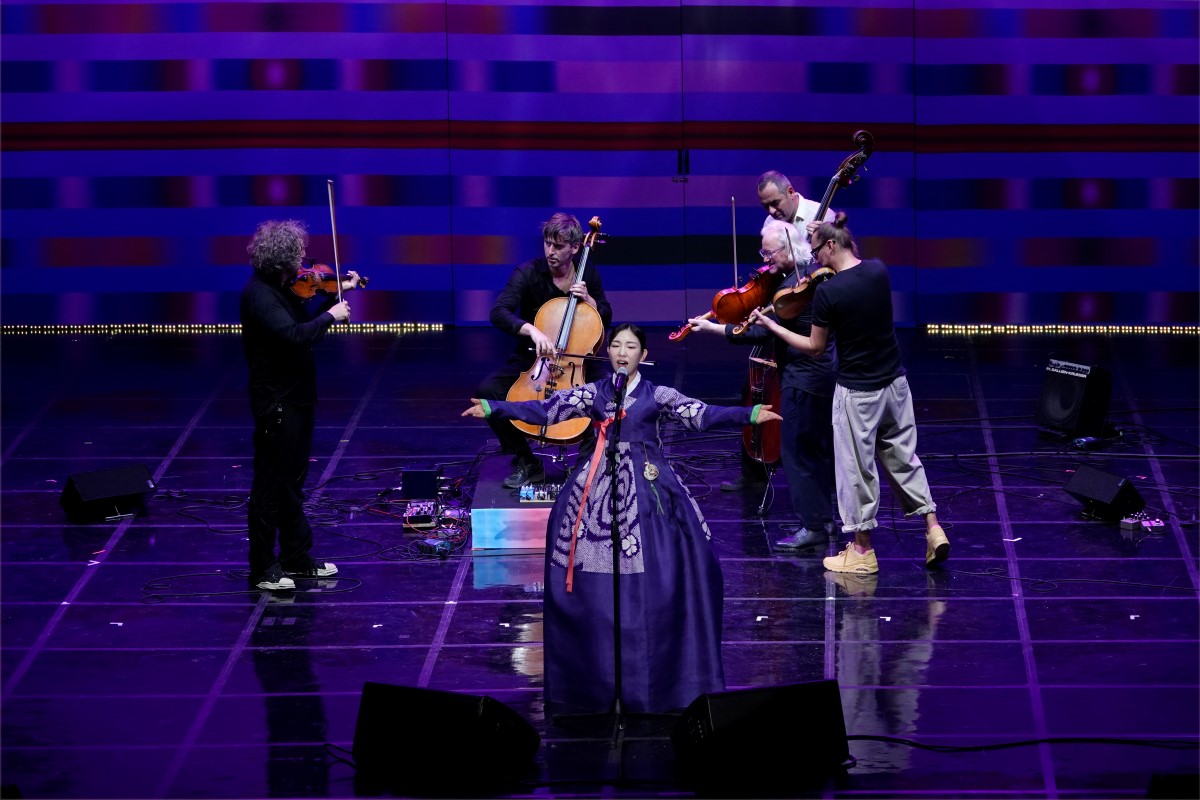Attending the Jeonju International Sori Festival is a guaranteed plunge into the deepest and most thrilling dimensions of Korean musical traditions. For me, this year marked the second opportunity to do so, allowing me once again to enjoy a truly unique art form — pansori — which always holds a prominent place in the programme, with daily performances by outstanding artists. Equally striking are the explosive street shows by the large, thunderous nongak troupes, a form deeply tied to rural communities. Refined performances in the instrumental sanjo style were also an interesting part of the programme.
 |
| Jinan Jungpyeong Gut at Jeonju International Sori Festival 2024. Photo: Jeonju International Sori Festival |
With strong support from the local public, the festival also holds great potential for attracting international visitors, thanks to the originality and high calibre of its musical expressions. It likewise offers Korean audiences the opportunity to engage with other musical cultures — such as Polish and Indonesian — through performances by Vołosi, Nusantara Beat, and other international artists and ensembles.
During the festival’s 23rd edition, held from 14 to 18 August 2024, I had the opportunity to speak with the new festival’s director, Hee-sun Kim, about the spirit and vision behind this exceptional cultural gathering. Our conversation shed light on the festival’s identity, its evolving goals, and the meaningful role it plays in connecting tradition with innovation.
Jeonju International Sori Festival (JISF) reaffirmed once again its place as one of South Korea’s premier cultural events, devoted to traditional music and performing arts. Led by its new director, Hee-sun Kim, the festival took bold strides in blending Korea’s rich heritage with contemporary expressions and international collaboration — all under the banner of its guiding theme: “Local Prism: Enlarging Perspective.”
“From very deep tradition to very contemporary performing arts”
Originally launched in 2001, the Sori Festival has developed a distinctive character. “Actually, Jeonju International Sori Festival began in 2001… this is our 23rd edition,” explained Kim, highlighting its longevity and evolution. Unlike other festivals in Korea that might approach traditional music from a purely local or folkloric angle, JISF seeks to elevate these forms to the realm of high art. “This is very special, unique — to focus on performing arts — and we want to bring more audience who really respect traditional arts,” Kim said.
The 2024 edition was shaped around a key idea: reinterpreting and expanding the view of tradition. “This year’s kind of keyword was ‘local prism enlarging perspective.’ So, from the very, very deep tradition to the very contemporary performing arts — that is our focus,” she stated. This vision guided both the programming and the broader mission of the festival.
 |
| Lee Jaram at Jeonju International Sori Festival 2024. Photo: Jeonju International Sori Festival |
A powerful start and a resonant closing
The opening concert offered a symbolic and artistic tribute to the region’s deep cultural legacy. “Our opening concert was a stage production focused on farmers’ fan music, which is from this province,” Kim explained, referring to nongak, a traditional percussion-based music deeply rooted in Korean rural life. The performance also marked an important milestone: the 10th anniversary of nongak’s designation as UNESCO Intangible Cultural Heritage. “We were trying to celebrate how this local performing art became more worldly renowned — that is part of it,” Kim said.
As for the closing concert, the spotlight was reserved for pansori, a genre that lies at the heart of the festival’s identity, featuring celebrated artists Cho Sanghyeon and Shin Yeonghee. “Our closing concert will be focused on pansori, which is our own major genre of the Sori Festival. The term sori comes from pansori,” Kim emphasized. This traditional Korean narrative singing combines music, storytelling, and theatrical performance into a powerful solo art form.
 |
| Vołosi & Chae Suhyeon at Jeonju International Sori Festival 2024. Photo: Jeonju International Sori Festival |
Bridging generations and cultures
Beyond performances, the Sori Festival operates with a broader cultural mission: education, preservation, and intergenerational dialogue. “We want to educate our audience and also share the value of traditional performing arts,” Kim said. “At the same time, we focus on how we can promote or support the younger generations of performers… and we are trying to get more younger audiences to come to the festival.”
This dual focus — respecting heritage and investing in the future — defines the spirit of the event. “We respect tradition, and we also respect the traditions of other peoples around the world,” Kim said, reinforcing the festival’s openness to global collaboration and mutual learning.
Rooted in Jeonju, at the heart of Korea’s cultural heritage
The city of Jeonju is more than just a backdrop; it’s the beating heart of the festival’s mission. “This city — Jeonju — is known for being the home of traditional performing arts. That is really, really an important mission for us: to do this festival here,” Kim explained. The location serves as both a symbolic and practical foundation for celebrating Korea’s cultural heritage.
As the 2024 edition drew to a close, the Jeonju International Sori Festival once again proved its ability to honour the past while looking boldly into the future — a place where tradition is not only preserved, but reimagined and shared with the world.
Author: Juan Antonio Vázquez, Transglobal World Music Chart co-founder, co-administrator and member; Mundofonías and Mil Mundos presenter.
